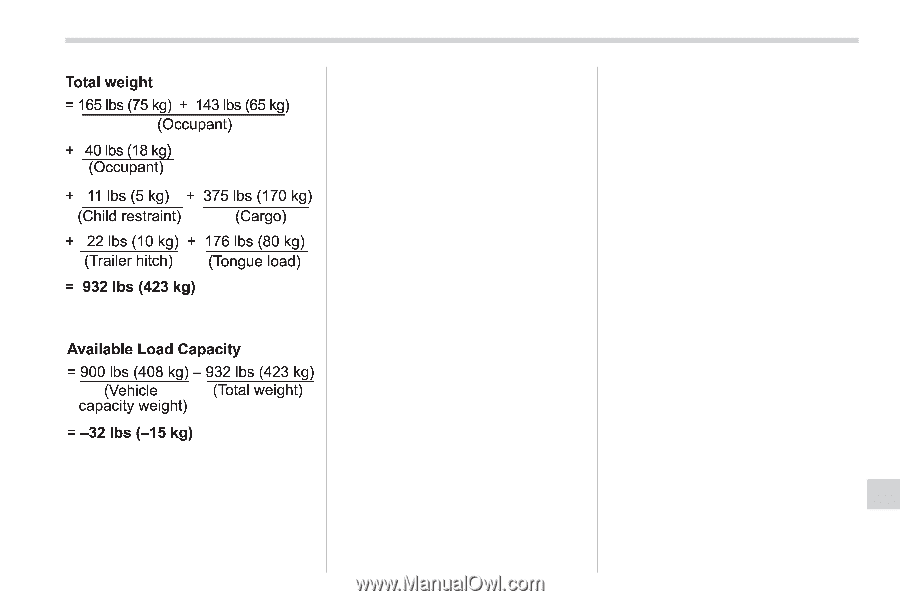2007 Subaru Impreza Owner's Manual - Page 367
2007 Subaru Impreza Manual
Page 367 highlights
Consumer information and Reporting safety defects 13-11 NOTE Your vehicle is neither designed nor intended to be used for trailer towing. Therefore, never tow a trailer with your vehicle. & Determining compatibility of tire and vehicle load capacities The sum of four tires' maximum load ratings must exceed the maximum loaded vehicle weight ("GVWR"). In addition, sum of the maximum load ratings of two front tires and of two rear tires must exceed each axle's maximum loaded capacity ("GAWR"). Original equipment tires are designed to fulfill those conditions. The maximum loaded vehicle weight is referred to Gross Vehicle Weight Rating (GVWR). And each axle's maximum loaded capacity is referred to Gross Axle Weight Rating (GAWR). The GVWR and each axle's GAWR are shown on the vehicle certification label affixed to the driver's door. The GVWR and front and rear GAWRs are determined by not only the maximum load rating of tires but also loaded capacities of the vehicle's suspension, axles and other parts of the body. Therefore, this means that the vehicle cannot necessarily be loaded up to the tire's maximum load rating on the tire sidewall. 2. Calculate the available load capacity. 3. The total weight now exceeds the capacity weight by 32 lbs (15 kg), so the cargo weight must be reduced by 32 lbs (15 kg) or more. & Adverse safety consequences of overloading on handling and stopping and on tires Overloading could affect vehicle handling, stopping distance, and vehicle and tire performance in the following ways. This could lead to an accident and possibly result in severe personal injury. . Vehicle stability will deteriorate. . Heavy and/or high-mounted loads could increase the risk of rollover. . Stopping distance will increase. . Brakes could overheat and fail. - CONTINUED -
















